Scientists expand entomological research using genome editing
Scienmag
JULY 22, 2022
Genome sequencing, where scientists use laboratory methods to determine a specific organism’s genetic makeup, is becoming a common practice in insect research.
This site uses cookies to improve your experience. By viewing our content, you are accepting the use of cookies. To help us insure we adhere to various privacy regulations, please select your country/region of residence. If you do not select a country we will assume you are from the United States. View our privacy policy and terms of use.
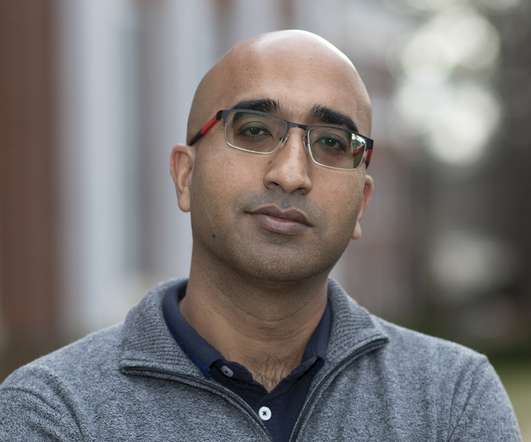
Scienmag
MARCH 10, 2022
Scientists have developed a powerful, inclusive new tool for genomic research that boosts efforts to develop more precise treatments for many diseases by leveraging a better representation of the genetic diversity of people around the world.
This site is protected by reCAPTCHA and the Google Privacy Policy and Terms of Service apply.

XTalks
APRIL 21, 2023
The application of whole genome sequencing (WGS) to derive a more complete understanding of cancer has been a central goal of cancer researchers even before the first human genome was decoded in 2003. Ultima Genomics has already partnered with other leading biotech startups.

Pharmaceutical Technology
JULY 26, 2022
The last few months have marked the publication of research emerging from projects designed to collect and analyse genomic data on a wider scale than was previously thought possible. The post Magazine: Genomic projects exploit scale as clinical applications play catch-up appeared first on Pharmaceutical Technology.

Pharmaceutical Technology
JUNE 30, 2022
Earlier this month, scientists from Cambridge University and the Madrid-based National Cancer Research Center described a novel framework tracking chromosomal instability and copy number changes in particularly deadly cancers. Genomic research have greatly expanded our understanding of disease pathophysiology over the years.
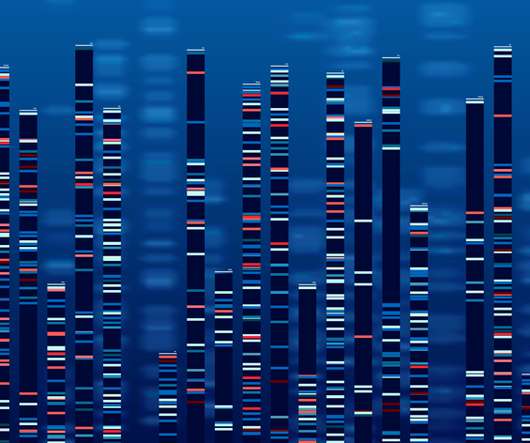
pharmaphorum
JANUARY 26, 2023
2022 was a banner year for genomics. In March, the collaborative T2T consortium published the first complete telomere-to-telomere sequence of the human genome, filling in the last 8% of the 3 billion base pairs that make up our DNA.

STAT News
MARCH 22, 2023
Stanford cardiologist Euan Ashley and his research team received a Guinness World Record last year for sequencing a full human genome in just over five hours. Ashley is at the forefront of a push by researchers to make more genetic information available to patients facing major health care decisions.

Medical Xpress
FEBRUARY 21, 2023
A large research project, led by scientists at Sylvester Comprehensive Cancer Center in the University of Miami Miller School of Medicine, Memorial Sloan Kettering Cancer Center, and Weill Cornell Medical College, has found that whole genome sequencing (WGS) can provide much more information about classic Hodgkin lymphoma (cHL) than exome sequencing, (..)

Scienmag
JUNE 26, 2022
June 27, 2022–The first high-quality genome of the desert locust—those voracious feeders of plague and devastation infamy and the most destructive migratory insect in the world—has been produced by U.S. Department of Agriculture Agricultural Research Service scientists. Credit: Photo by Brandon Woo.

STAT News
MARCH 3, 2023
Next week, hundreds of scientists from around the world will convene in London for an international summit on genome editing. That technology, which enables scientists to easily excise, alter, or replace specific sections of DNA, was awarded the 2020 Nobel Prize for Chemistry. Continue to STAT+ to read the full story…
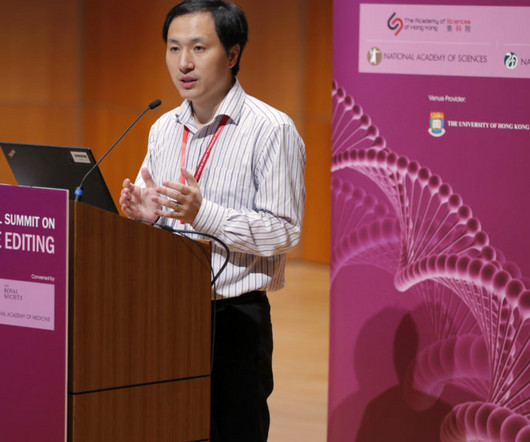
STAT News
MARCH 6, 2023
That was the message Chinese scientists delivered Monday on the opening day of the Third International Summit on Human Genome Editing in London. LONDON — The first gene-edited children were born in China five years ago , but it’s unlikely to happen again there anytime soon.

Pharmaceutical Technology
FEBRUARY 3, 2023
The field of genomic medicine has reached a true turning point. With scientists fervently developing mRNA vaccines, nucleic acid therapeutics, and viral vector-based gene therapies, clinicians are set to have a growing number of tools available to treat a wide range of conditions, from infectious diseases to genetic disorders and more.

Scienmag
JANUARY 26, 2022
To provide important genomic data to inform research about Europe’s biodiversity, scientists from 48 different countries initiated the “European Reference Genome Atlas” (ERGA) in 2021.

Scienmag
SEPTEMBER 30, 2021
LA JOLLA—(September 30, 2021) Salk Assistant Professor Graham McVicker has been awarded a National Human Genome Research Institute (NHGRI) Genomic Innovator Award, which supports early-career scientists who conduct innovative, creative research in genomics. The award, which provides $2.85

BioTech 365
FEBRUARY 22, 2021
Biotechnology, Pharma and Biopharma News – Research – Science – Lifescience ://Biotech-Biopharma-Pharma: Scientists advance understanding of hop genome, which could aid brewers, medical researchers.Oregon State University and U.S.
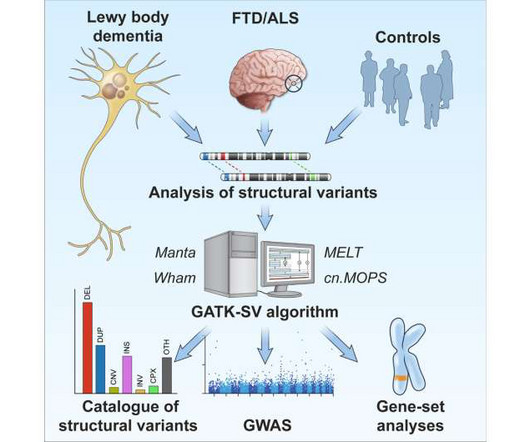
Medical Xpress
MAY 8, 2023
Scientists at the National Institutes of Health have identified new genetic risk factors for two types of non-Alzheimer's dementia. These findings were published in Cell Genomics and detail how researchers identified large-scale DNA changes, known as structural variants, by analyzing thousands of DNA samples.

STAT News
OCTOBER 3, 2022
A Swedish scientist won the 2022 Nobel Prize in medicine or physiology on Monday for his groundbreaking research into the evolutionary history of humankind. Pääbo unlocked scientists’ understanding of how genes from these extinct relatives have been passed down to present-day humans. Read the rest…

Scienmag
DECEMBER 20, 2021
A worldwide consortium of scientists, led by the Earlham Institute and the University of Liverpool in the UK, mark a significant milestone in equipping researchers in low- and middle-income countries (LMICs) with cheap and accessible methods for sequencing large collections of bacterial pathogens – at a cost of less than $10USD per genome.

Medical Xpress
MAY 4, 2023
The p53 gene is one of the most important in the human genome: the only role of the p53 protein that this gene encodes is to sense when a tumor is forming and to kill it. While the gene was discovered more than four decades ago, researchers have so far been unsuccessful at determining exactly how it works.

BioTech 365
SEPTEMBER 16, 2020
Biotechnology, Pharma and Biopharma News – Research – Science – Lifescience ://Biotech-Biopharma-Pharma: Scientists update genome editing technology.Researchers from Peter the Great St.

Medical Xpress
NOVEMBER 16, 2022
Researchers at the National Institutes of Health have successfully identified differences in gene activity in the brains of people with attention deficit hyperactivity disorder (ADHD).
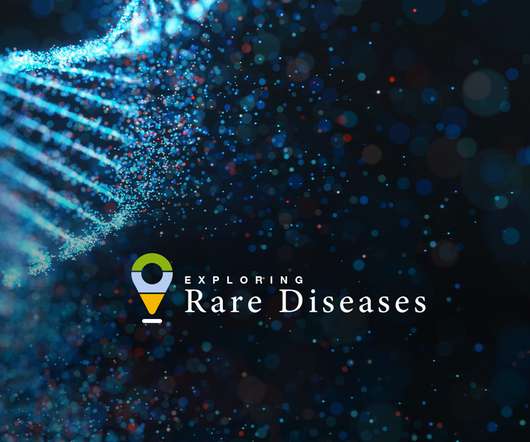
pharmaphorum
SEPTEMBER 14, 2020
Here he gives us a deeper look at how genomic medicine is evolving and the barriers that are preventing it from reaching its full potential. I saw this, in particular, with the finishing of the human genome,” says Charlie. “At In reality, finishing the human genome was the first step of what is a long journey.”.

STAT News
FEBRUARY 22, 2023
Moderna will fund preclinical research studies run by the two companies using Life Edit’s tools based on CRISPR technologies that allow scientists to make precise changes to the human genome. Life Edit is the North Carolina subsidiary of ElevateBio, a cell and gene therapy manufacturing firm in Waltham.

Medical Xpress
FEBRUARY 10, 2023
Researchers at the National Institutes of Health have discovered a new neurological condition characterized by issues with motor coordination and speech. They report their findings in npj Genomic Medicine.

pharmaphorum
JULY 20, 2022
Now, scientists in the UK think they have found a culprit implicated in cancer. Just how that happens hasn’t been discovered, but scientists from the Institute of Cancer Research (ICR) in the UK think they have now identified a potential mechanism. billion last year.

BioTech 365
SEPTEMBER 14, 2021
Biotechnology, Pharma and Biopharma News – Research – Science – Lifescience ://Biotech-Biopharma-Pharma: Scientists can now assemble entire genomes on their personal computers in minutes.Scientists at the Massachusetts Institute of Technology (MIT) and the Institut Pasteur in France have developed … Continue reading → (..)

pharmaphorum
OCTOBER 19, 2022
million ($40 million) first-round financing that will be used to explore so-called ‘dark’ regions of the human genome. Nucleome’s platform adds 3D genomic information to a wealth of available genomic data, uncovering a new dimension of information that is disease as well as cell type-specific.

BioTech 365
NOVEMBER 11, 2020
Biotechnology, Pharma and Biopharma News – Research – Science – Lifescience ://Biotech-Biopharma-Pharma: Scientists release genomes of birds representing nearly all avian families.Since the first bird evolved more than 150 million years ago, its descendants have adapted to a vast … Continue reading →

The Pharma Data
NOVEMBER 25, 2021
The International Cancer Genome Consortium (ICGC) is further enabling cancer research worldwide by making a massive collection of cancer data available for analysis via Microsoft’s Azure cloud computing platform. ” ICGC has now moved into its next phase called ICGC ARGO (Accelerating Research in Genomic Oncology). .”

Scienmag
JANUARY 5, 2022
SAN FRANCISCO, CA—January 5, 2021—Over the past decade, the CRISPR genome-editing system has revolutionized molecular biology, giving scientists the ability to alter genes inside living cells for research or medical applications.

The Pharma Data
OCTOBER 26, 2021
The AVENIO Tumor Tissue Comprehensive Genomic Profiling (CGP) Kit is the first jointly-developed product that brings together the expertise and reach of Roche with Foundation Medicine’s pioneering leadership in genomic science. Cancer is a disease of the genome and treatment no longer depends solely on the tissue of origin.

Medical Xpress
APRIL 13, 2023
Scientists from the University of California, Irvine, the University of Michigan and the University of Texas MD Anderson Cancer Center have made a significant contribution to the field of pancreatic cancer research. The study appears in the journal Cell.

BioTech 365
FEBRUARY 2, 2021
Biotechnology, Pharma and Biopharma News – Research – Science – Lifescience ://Biotech-Biopharma-Pharma: ‘Genetic SD-card’: Scientists obtain new methods to improve the genome editing system.Researchers from Peter the Great St.Petersburg Polytechnic University (SPbPU) in collaboration with colleagues from Belgium take (..)

BioTech 365
JUNE 16, 2021
Biotechnology, Pharma and Biopharma News – Research – Science – Lifescience ://Biotech-Biopharma-Pharma: Ten years of ancient genome analysis has taught scientists ‘what it means to be human’ A ball of 4,000-year-old hair frozen in time tangled around a whalebone comb … Continue reading →

BioTech 365
APRIL 16, 2021
Biotechnology, Pharma and Biopharma News – Research – Science – Lifescience ://Biotech-Biopharma-Pharma: Scientists are on a path to sequencing 1 million human genomes and use big data to unlock genetic secrets.The first draft of the human genome was published … Continue reading →

XTalks
OCTOBER 19, 2023
An assay development scientist combines deep biological and biochemical expertise with practical laboratory skills to develop tests that can answer specific biological questions or drive the drug discovery process. Related: Pharmaceutical Scientist Jobs: What to Know Before Applying What Does an Assay Development Scientist Do?

Pharmaceutical Technology
JUNE 14, 2023
All that DNA is organised into hereditary units called genes, with humans having about 25,000 genes collectively known as the genome. The Human Genome Project Launched in October 1990, The Human Genome Project sought to sequence the entire human genome using a method called Sanger sequencing.

pharmaphorum
JANUARY 18, 2023
In 2016, scientists behind a study called the Resilience Project analysed genetic data from 589,000+ people and found 13 adults who carried genetic variants that should have resulted in serious – even deadly – childhood disease, but who were apparently healthy. Giving participants something in return. with their priorities.

pharmaphorum
FEBRUARY 25, 2022
A new stem cell model, discovered by researchers exploring the human genome, will help scientists to map out the key genomic changes during early development. Prior to this latest development, research into the human ZGA was limited to human embryos at a later stage of growth, under stringent UK regulations.
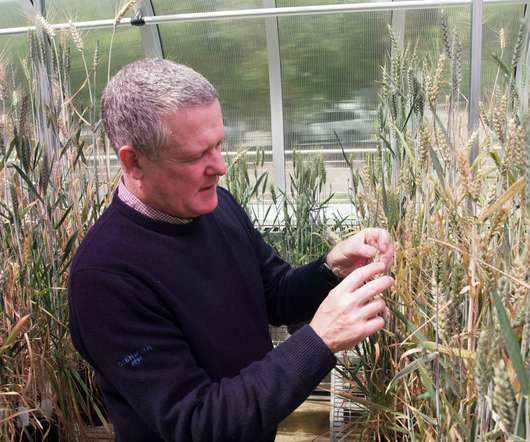
Scienmag
NOVEMBER 25, 2020
Credit: University of Adelaide An international research collaboration, including scientists from the University of Adelaide’s Waite Research Institute, has unlocked new genetic variation in wheat and barley – a major boost for the global effort in breeding higher-yielding wheat and barley varieties.

BioTech 365
SEPTEMBER 28, 2020
Biotechnology, Pharma and Biopharma News – Research – Science – Lifescience ://Biotech-Biopharma-Pharma: Scientists use ‘genomic time travel’ to discover new genetic traits to breed more productive, resilient African cattle.Scientists announced today the discovery of a new set of detailed … Continue reading → (..)

Scienmag
SEPTEMBER 8, 2020
NEW YORK, NY (September 8, 2020) – Leading cancer scientists working with the New York Genome Center (NYGC) announced today that grants are being awarded to fund six projects that address the role of ethnicity in several major cancer types, taking advantage of the diversity of patients being treated at health care institutions throughout the (..)

BioTech 365
SEPTEMBER 11, 2021
Biotechnology, Pharma and Biopharma News – Research – Science – Lifescience ://Biotech-Biopharma-Pharma: Scientists debate promise, peril of tweaking wild genomes.In the movie Jurassic Park, reconstructing and tweaking genetic material makes it possible to bring dinosaurs back to life.

Scienmag
FEBRUARY 10, 2021
Researchers at Uppsala University and the Swedish University of Agricultural Sciences have used new methods for DNA sequencing and annotation to build a new, and more complete, dog reference genome.
Expert insights. Personalized for you.
We have resent the email to
Are you sure you want to cancel your subscriptions?



Let's personalize your content